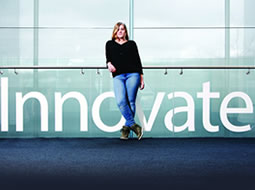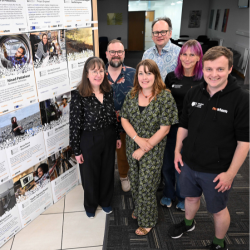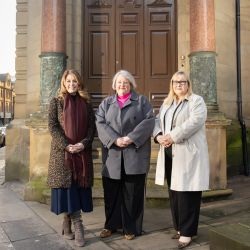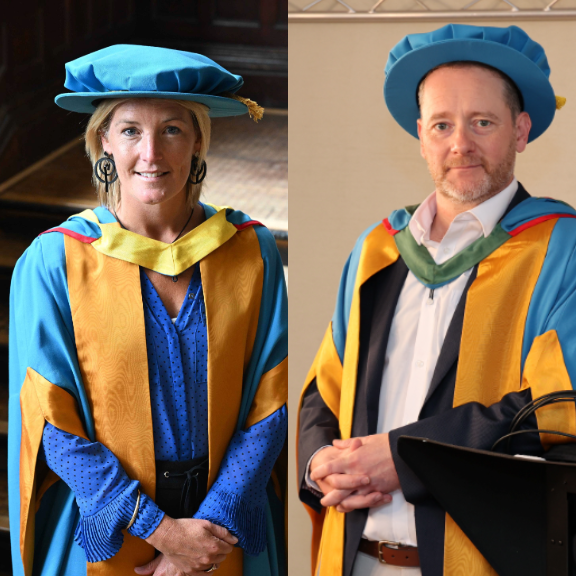-
Study
-
Clearing 2025
- Clearing FAQs
- Clearing VIP
- Clearing Case Studies
- Unlock Your Potential
- Scholarships
- Search Clearing
-
Undergraduate
- UCAS Clearing & Confirmation 2025
- Application Guides
- UCAS Exhibitions
- Foundation Years
- School & College Outreach
- Information for Parents
-
Postgraduate
- Application Guide
- Postgraduate Research Degrees
- Flexible Learning
- Change Direction
- Register your Interest
-
-
International
International
Northumbria’s global footprint touches every continent across the world, through our global partnerships across 17 institutions in 10 countries, to our 277,000 strong alumni community and 150 recruitment partners – we prepare our students for the challenges of tomorrow. Discover more about how to join Northumbria’s global family or our partnerships.
View our Global Footprint-
Quick Links
- Course Search
- Undergraduate Study
- Postgraduate Study
- Information for Parents
- London Campus
- Northumbria Pathway
- Cost of Living
- Sign up for Information
-
International Students
- Information for Students
- International Events
- Application Guide
- Entry Requirements and Education Country Agents
- Global Offices
- English Requirements
- English Language Centre
- International student support
- Cost of Living
-
International Fees and Funding
- International Undergraduate Fees
- International Undergraduate Funding
- International Masters Fees
- International Masters Funding
- International Postgraduate Research Fees
- International Postgraduate Research Funding
-
International Partners
- Agent and Representatives Network
- Global Partnerships
- Global Community
-
International Mobility
- Information for Northumbria Students
- Information for Incoming Exchange Students
-
-
Business
Business
The world is changing faster than ever before. The future is there to be won by organisations who find ways to turn today's possibilities into tomorrows competitive edge. In a connected world, collaboration can be the key to success.
More on our Business Services -
Research
Research
Northumbria is a research-rich, business-focused, professional university with a global reputation for academic quality. We conduct ground-breaking research that is responsive to the science & technology, health & well being, economic and social and arts & cultural needs for the communities
Discover more about our Research-
Quick Links
- Research Peaks of Excellence
- Academic Departments
- Research Staff
- Postgraduate Research Studentships
- Research Events
-
Research at Northumbria
- Interdisciplinary Research Themes
- Research Impact
- REF
- Partners and Collaborators
-
Support for Researchers
- Research and Innovation Services Staff
- Researcher Development and Training
- Research Ethics and Integrity
- University Library
- Vice Chancellors Fellows
-
Research Degrees
- Postgraduate Research Overview
- Doctoral Training Partnerships and Centres
- Academic Departments
-
Research Culture
- Research Culture
- Research Culture Action Plan
- Concordats and Commitments
-
-
About Us
-
About Northumbria
- Our Strategy
- Our Staff
- Place and Partnerships
- Leadership & Governance
- Academic Departments
- University Services
- History of Northumbria
- Contact us
- Online Shop
-
-
Alumni
Alumni
Northumbria University is renowned for the calibre of its business-ready graduates. Our alumni network has over 246,000 graduates based in 178 countries worldwide in a range of sectors, our alumni are making a real impact on the world.
Our Alumni - Work For Us

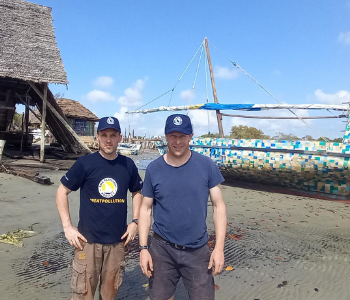 Thanks
to a grant from UK Aid, Senior Lecturer
Thanks
to a grant from UK Aid, Senior Lecturer 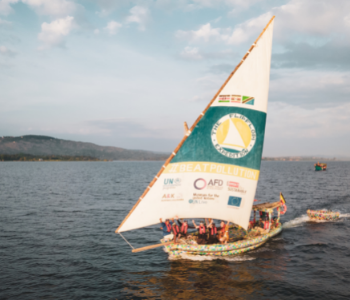 Now a major circular economy movement
in East Africa, the Flipflopi Project was co-founded by former Northumbria
University student, Ben Morison and two Kenyans, Ali Skanda and Dipesh Pabari.
These days the organisation runs education programmes and innovation hubs to
help generate public and policy engagement on reducing plastic waste.
Now a major circular economy movement
in East Africa, the Flipflopi Project was co-founded by former Northumbria
University student, Ben Morison and two Kenyans, Ali Skanda and Dipesh Pabari.
These days the organisation runs education programmes and innovation hubs to
help generate public and policy engagement on reducing plastic waste.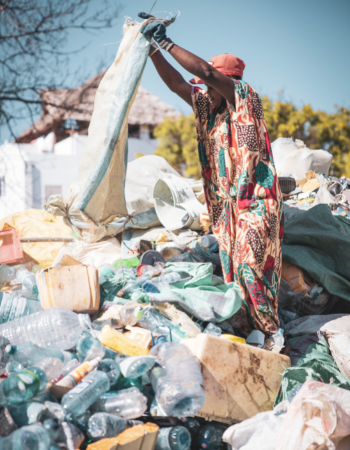 In
preparation for establishing the new recycling and training centre, partners
involved in the Flipflopi project took part in a 300 kilometre scientific sailing
expedition earlier this year, in an effort to map the impact of plastic waste
on the remote communities surrounding Lamu Archipelago. Observations showed
that, even in the most remote island states, the problem of plastic waste
littered across shorelines and throughout mangrove forests was having a serious
impact on lives and ecosystems.
In
preparation for establishing the new recycling and training centre, partners
involved in the Flipflopi project took part in a 300 kilometre scientific sailing
expedition earlier this year, in an effort to map the impact of plastic waste
on the remote communities surrounding Lamu Archipelago. Observations showed
that, even in the most remote island states, the problem of plastic waste
littered across shorelines and throughout mangrove forests was having a serious
impact on lives and ecosystems.